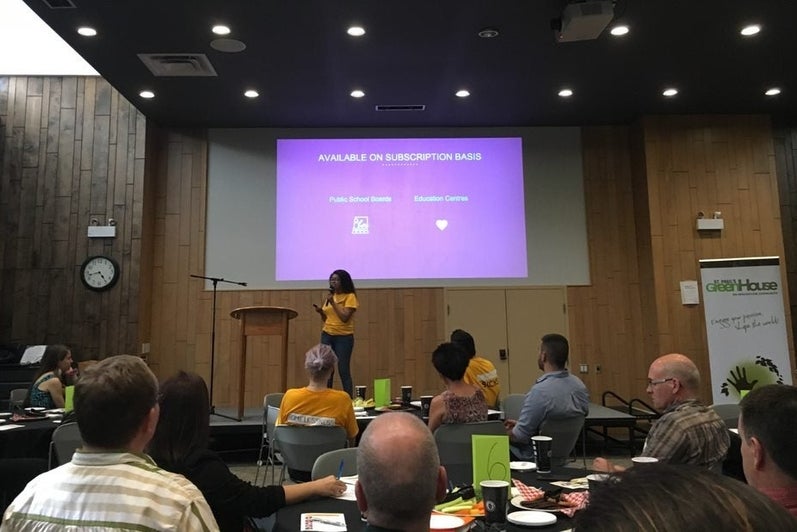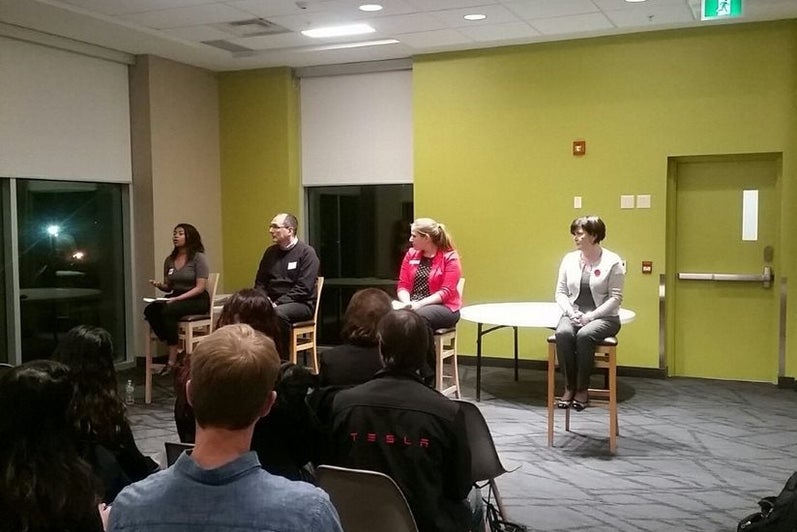Lunaria answers demand for DEI data transparency
By: Krista Henry
With conversations around diversity, equity and inclusion (DEI) in the spotlight -Lunaria Solutions takes the next step with innovative training and analytics software.
As organizations move beyond the business case for DEI and form strategies to tackle systemic issues, metrics help to inform and drive DEI targets. Lunaria’s software and advisors help establish DEI infrastructures, identify success measures and more. “We combine intuitive online training and powerful analytics tools to help companies implement and grow their DEI initiatives,” says Cassie Myers, CEO and founder, Lunaria.
“We audit organizations through our software and use the results to make recommendations that include policies changes, new initiatives or communications. Our software then matches them with online education modules that assist in advancing the capabilities of their teams,” she says.

Cassie Myers
CEO founder of Lunaria
UWaterloo Arts Alumna
“We survey their employees every month or quarter to measure progress. That’s what’s different about what we do - help them to be proactive in evaluating their progress and to fill any gaps before they cause harm.”
A changemaker
“With my lived experiences in life as a mixed-race Black woman coming from the University of Waterloo, I had the opportunity to tap support to feel included and to connect to different people in my community,” she says. “Everyone has different experiences and barriers. This inspired me to start Lunaria.”
Myers believes the DEI field will continue to grow. “Last summer after the murder of George Floyd, more businesses started to respond to social injustices facing their employees outside of the workplace and started to invest in the need for DEI. Before that, the focus was largely on the business benefits of DEI which are hard to ignore. Now people are seeing the social benefit as well,” she says.
Diversity professionals
Throughout North America, companies are ramping up hiring in DEI roles. Glassdoor’s Economic Research team studied millions of job listings and found openings for DEI roles increased by 30 per cent in the last year. According to Myers, Arts students are a perfect fit for these roles.
“One of the key components of DEI is understanding the different perspectives among communities -which can be learned through Arts-related courses like psychology, sociology, history, gender and social justice, peace conflict studies and more. These key focus areas are not always an area of study for other programs. Being able to focus your DEI knowledge is a benefit of an Arts program,” she says. “You can take humanities courses to situate yourself in the space, then depending on your area of focus take a math, statistics or HR course to be able to support the reporting and planning needed in this space.”
Skills for DEI
As a professional in the field and former co-op student, Myers highlights various skills needed to flourish in this field that Arts students have:
-
Social awareness: Research skills and awareness of social issues to help better understand experiences of marginalized groups.
-
Data and analysis: DEI is multifaceted and as organizations and people learn to be accountable, data analysts can help fill gaps.
-
Policy knowledge: Awareness of government regulations and industry best practices is an asset in this field. Arts degrees have an array of academic knowledge that can be utilized to advance DEI initiatives.
-
Communication: A big part in being successful in the DEI space is communicating what an organization’s gaps are. Organizations need diverse communicators that are honest, authentic and bring different perspectives.







